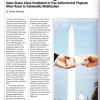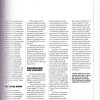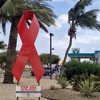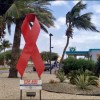Founded in May of 1999, the Black AIDS Institute is the only national HIV/AIDS think tank focused exclusively on Black people. The Institute’s Mission is to stop the AIDS pandemic in Black communities by engaging and mobilizing Black institutions and individuals in efforts to confront HIV. The Institute interprets public and private sector HIV policies, conducts trainings, offers technical assistance, disseminates information and provides advocacy mobilization from a uniquely and unapologetically Black point of view.
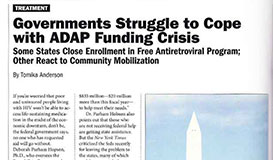
Goverments Struggle to Cope with ADAP Funding Crisis
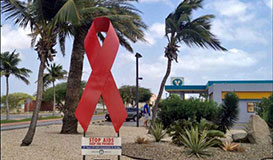
The Black Treatment Advocates Network: Advocating for People Everywhere
-

The Black Treatment Advocates Network: Advocating for People Everywhere
Women's Club of Aruba commemorates its AIDS awareness campaign efforts with strategically placed sculpture created and donated by Jan van Duren of Pro Paint van Duren
Aruba may be known for its surf, sand and stunning resorts, but HIV activists, cousins and Black Treatment Advocates Network (BTAN) members John T. Curry and Yolanda Price think the Caribbean nation may deserve to be known for something else: its visible fight against HIV/AIDS.
While vacationing in the capital city of Oranjestad with three other BTAN members this summer, the pair were surprised to see a giant red ribbon strung up at the Valero gas station in the center of town—a symbol of Arubans who had perished from AIDS, and a landmark of an AIDS awareness campaign begun 25 years ago.
As members of BTAN—the only collaboration that links HIV-positive Black Americans to care and treatment, strengthens local and national leadership, connects influential peers, raises HIV science and treatment literacy in Black communities, and advocates for policy change and research priorities—they understood that the ribbon, representing the plight of people of color around the globe, was no small deal. They learned that the ribbon had been raised in 2011 after seven months of negotiations between its sponsor, the Women's Club of Aruba, and the country's government. It acknowledges the 4 percent of the island's 103,484 PLWHA, according to the Department of Public Health of Aruba, as of 2008.


